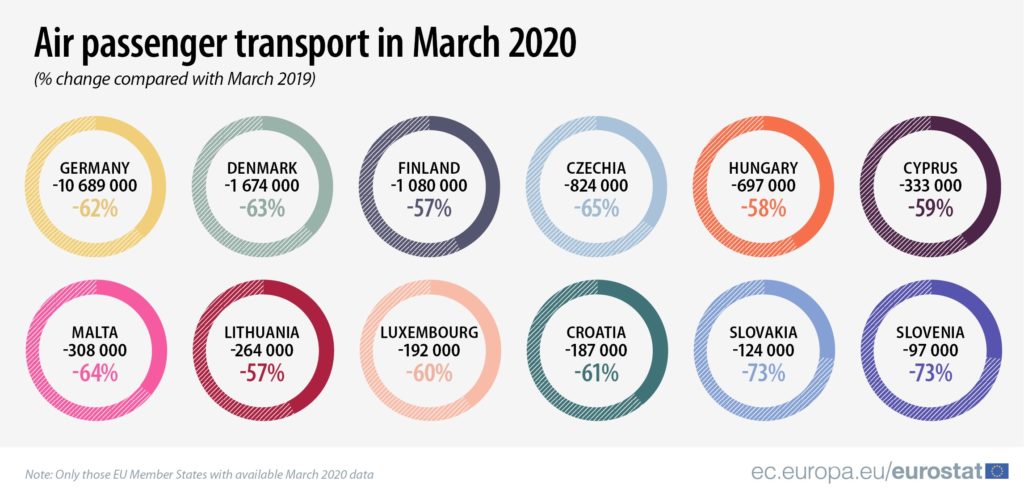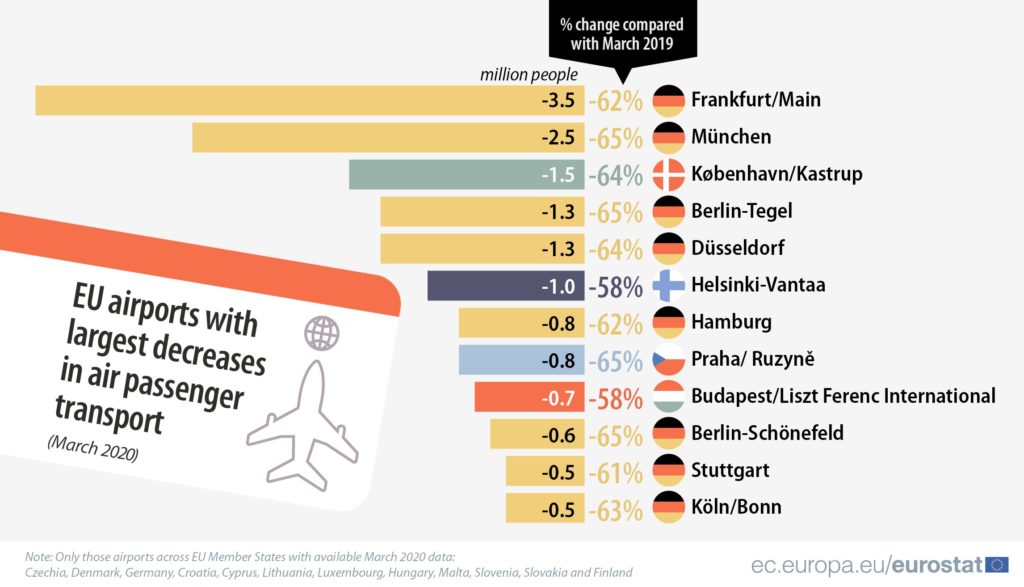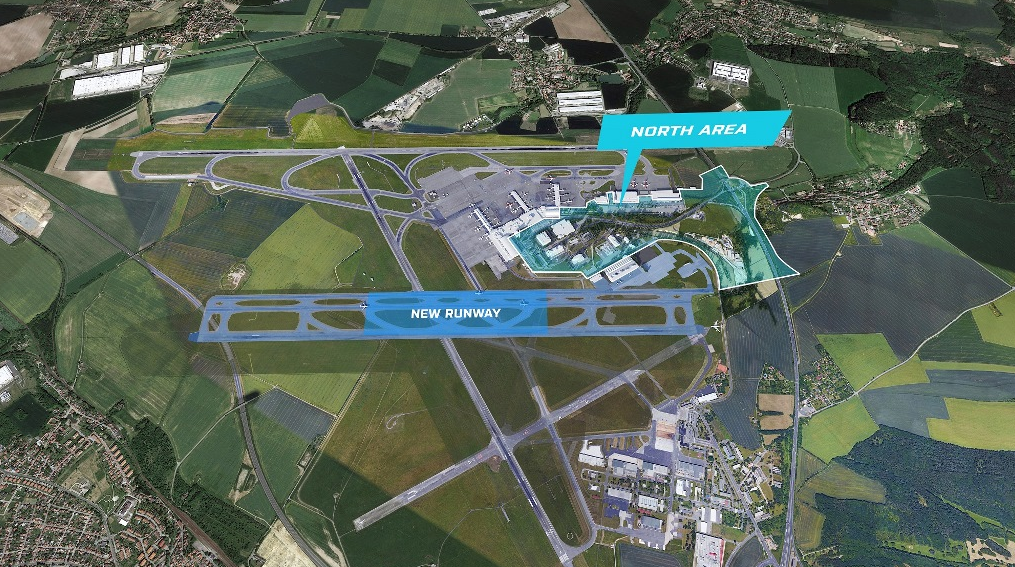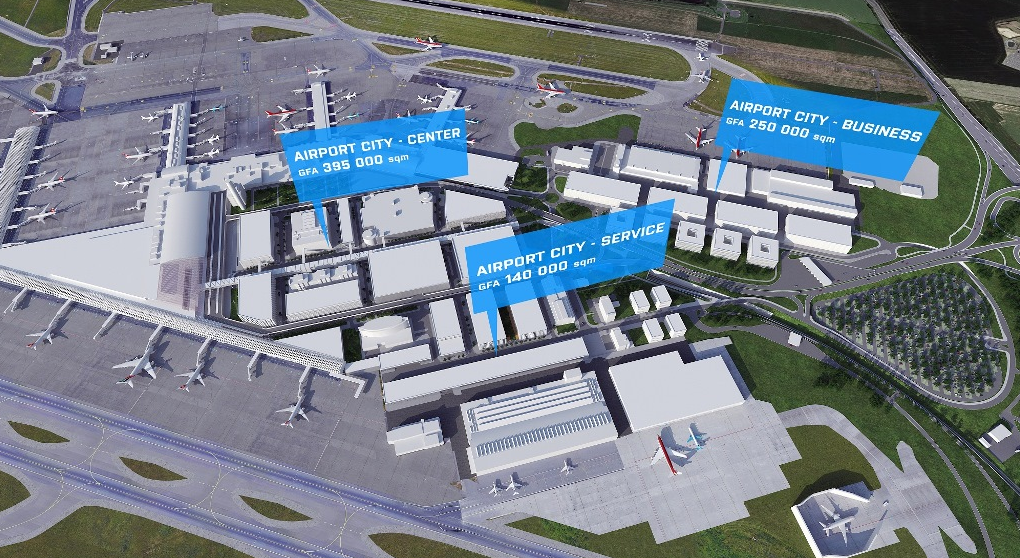The low-cost airline easyJet plans to resume operations from Prague Airport in July.
The carrier should start flying again to Amsterdam from 13 July, to Manchester from 16 July, to Edinburgh from 17 July and a day later to Milan Malpensa.
Gradually, direct flights to other destinations from Prague should be resumed: Basel, Venice, Naples, Bristol, and London Gatwick Airport.
The budget carrier has enforced strict new social distancing measures for passengers, having grounded services back in April after the coronavirus crisis swept the globe.
The airline is planning to ramp up services as the summer progresses and by August has said it will be flying about three-quarters of routes but at a much lower frequency than last year.
Looking for a job in Prague? Visit our new job section!
Capacity will be at about 30% of usual in the busy July-to-September season, easyJet said. Its bigger rival Ryanair plans to be flying 40% of capacity by July.
“Thanks to our intensive negotiations with airlines, Prague Airport is gradually succeeding in resuming direct flights. At the moment we have confirmed a total of 55 destinations. Airlines are returning to their routes from Prague in line with the relaxation of traveling measures and, above all, in response to the demand for flying shown by passengers. It is this demand that will be key to the success of the resumed air connections in the coming weeks and months,” says Václav Řehoř, Chairman of the Prague Airport Board of Directors.
More information here
To prevent the spread of the COVID-19 pandemic, countries around the world have taken a variety of restrictive measures.
First 2020 numbers already show their significant impact on air transport for all 13 EU Member States according to an analysis conducted by the European Statistical Office (Eurostat): Czech Republic, Denmark, Germany, Croatia, Italy (see country note), Cyprus, Lithuania, Luxembourg, Hungary, Malta, Slovenia, Slovakia, and Finland.
Prague Airport is one of the most negatively affected airports in Europe: the number of passengers fell by more than 800,000, amounting to a drop of 65 percent year-on-year.

Prague Airport, together with Berlin’s Tegel and Schönefeld airports and Munich Airport, showed the largest percentage decrease when it comes to passengers handled. All four hubs had about 65 percent fewer travelers in March.
However, when considering absolute numbers, the number of passengers fell the most in Frankfurt by a total of 3.5 million.

“None of the dozen EU airports shows a deeper percentage drop in the numbers of checked-in passengers than Prague’s airport,” said economist Lukáš Kovanda from the Czech Fund.
He also added that in January and February of this year, the number of passengers handled at Prague Airport was higher year-on-year, exceeding the value of one million in both months.
Whilst the number of air passengers in some of these EU Member States started to decrease already in February 2020, the number of passengers at least halved in all of them in March 2020.
Compared with March 2019, the largest decreases in numbers of passengers were observed in Italy (-85%, -11.9 million (see country note)), Germany (- 10.7 million passengers carried, -62%), Denmark (-1.7 million, -63%), Finland (-1.1 million, -57%), Czechia (-0.8 million, -65%) and Hungary (-0.7 million,
A total of 17 airlines have already announced their intention to resume direct flights from Prague Airport.
Specifically, 55 destinations have been listed, ten of which are already in operation. This week, direct flights to seven other destinations will be resumed, namely to Belgrade, Brussels, Budapest, Košice, Keflavik, Manchester and Munich.
Thanks to intensive negotiations between Prague Airport and airlines, the list of destinations could expand further in the coming weeks.
“Thanks to our intensive negotiations with airlines, Prague Airport is gradually succeeding in resuming direct flights. At the moment we have confirmed a total of 55 destinations. Airlines are returning to their routes from Prague in line with the relaxation of traveling measures and, above all, in response to the demand for flying shown by passengers. It is this demand that will be key to the success of the resumed air connections in the coming weeks and months,” says Václav Řehoř, Chairman of the Prague Airport Board of Directors.
“Our main goal is to resume direct scheduled air connections to key destinations, which are major European cities used as important transfer hubs. These include, for example, London, Frankfurt, Paris, Amsterdam, Madrid and Vienna. In total, we have selected 45 such destinations and have received a confirmation of resumed flights already to 24 these destinations, which represent more than half of them,” Vaclav Rehor added.
Latvian airline airBaltic plans to resume direct flights from Prague to Riga on July 27 and the low-cost carrier Wizz Air has announced a new direct scheduled connection between Prague and Varna.
Looking for a job in Prague? Visit our new job section!
Many protective measures have been set up at Prague Airport in co-operation with public health authorities for several months. Departures and arrivals take place under strict hygienic conditions, which are to ensure the health and safety of passengers.
All passengers and visitors must wear face masks in all areas of the airport, keep a safe distance from other people, wash their hands frequently and thoroughly, and use hand sanitizers.
Here you can find the list of updated routes
Greece said Friday it would reopen its airports in Athens and Thessaloniki to arrivals from 29 countries from June 15, the start of the tourist season.
Visitors would be allowed to fly into Greece from 16 EU countries, including Germany, Austria, Denmark, Finland, the Czech Republic, Baltic countries, Cyprus and Malta, the tourism ministry said in a statement.
But countries hardest hit by the coronavirus pandemic — such as France, Spain, Britain, and Italy — were not on the list. Outside the European Union, holidaymakers from Switzerland, Norway, and neighbouring Balkan countries such as Albania, Serbia, and North Macedonia will be allowed to land at Greece’s main airports from June 15.
The list also includes Australia, Japan, Israel, Lebanon, China, New Zealand, and South Korea. The ministry said that further countries could be added before July 1 when the country’s regional airports also reopen.
“The list has been drawn up on the basis of the epidemiological profile of each country,” taking into account the recommendations of the European Aviation Safety Agency and a report by Greece’s commission for infectious diseases, the statement said.
Greece began the gradual easing of lockdown restrictions on May 4 and will start reopening its hotels next month. It has been less severely affected by the COVID-19 pandemic that many EU countries, with 175 deaths and 2,906 infections officially registered so far.
On Thursday, Czech Airlines announced a new daily flight to London (Heathrow) starting on June 25, meanwhile, on Friday the Hungarian low-cost carrier Wizzair announced the launch of a direct flight to Tirana, Albania.
The carrier will fly to the capital of Albania twice a week from July 3, 2020, on Mondays and Fridays.
Smartwings will start flying to Croatia from mid-June, as well as to Mallorca, the Canary Islands, Cyprus (Larnaca), Madeira (Funchal), and Bulgaria (Burgas and Varna).
Air France will start flying from Prague to Paris Charles de Gaulle Airport from June 3. Initially, it will fly twice a week, increasing to four flights a week by the end of June. From July, the Finnish carrier Finnair plans to renew the flight to Helsinki.
Prague Airport has a number of protective measures in place. All passengers and visitors to the airport must wear a face mask in all areas, maintain safe distances, and ensure hand hygiene. More than 250 disinfection stands are located throughout the airport.
“If passengers arriving in Prague do not have their own face mask, they will receive it one for free. The check-in are also equipped with plexiglass, forming a safe barrier between the passenger and the check-in employee,” said Kateřina Pavlíková, spokeswoman for Prague Airport.
Last year, Prague Airport handled a record 17.8 million passengers.
Check all the upcoming flights here
Passenger traffic at Prague Airport is slowly coming back.
In April, the airport saw an unprecedented drop in traffic of 99.6 percent, handling 5031 passengers. At the end of the month, there were only two regular lines, to Minsk and Sofia.
In May, however, the situation is starting to change. At the beginning of the month, KLM started daily flights to Amsterdam, as well as the direct Eurowings flight to Düsseldorf.
Czech Airlines is currently flying to Paris, Amsterdam and Frankfurt am Main. Air travel to and from Stockholm is set to be reinstated from May 21 and to Bucharest from May 25.
The carries plans to resume operation on its lines to Kiev and Odessa later in May, provided mandatory quarantine restrictions are terminated in Ukraine by then.
Lufthansa, Air France, and Finnair are resuming flights
In June, other airlines should gradually increase their connections. The flight to Frankfurt starting from June 1 has already been announced by Lufthansa.
Air France will start flying from Prague to Paris Charles de Gaulle Airport from June 3. Initially, it will fly twice a week, increasing to four flights a week by the end of June. From July, the Finnish carrier Finnair plans to renew the flight to Helsinki.
Last year, Prague Airport handled a record 17.8 million passengers.
As far as tourists are concerned, it is not yet completely clear when the Czech Republic will start opening up. Foreign Minister Tomáš Petříček said that this is likely to happen in July, provided that visitors show some sort of test.
The German low-cost airline headquartered in Düsseldorf and a wholly-owned subsidiary of the Lufthansa Group Eurowings is the first air carrier to resume partially regular operations after a break of more than six weeks.
Airbus A319 took off from Düsseldorf, Germany yesterday at 18:25, and landed in Prague on Sunday, May 3 at 19:17.
At the moment, Eurowings schedules two flights a week, except on Sundays on Thursdays. From June 1, the carrier expects two flights per day.
Another carrier is returning to Prague tomorrow: KLM’s Embraer E-175 will arrive in the morning and fly to Amsterdam every day.
Other carriers, on the other hand, continue to postpone the start of flights from Prague.
British Airways, which originally planned to resume flights on May 1, will start selling tickets on June 1 at the earliest.
Ryanair and easyJet postponed the launch to May 22, although the companies announced over the weekend that a larger number of flights is not expected until July.
Only Belavia to Minsk and Bulgaria Air to Sofia maintained regular flights in Prague during the pandemic.
Vítejte zpátky! Letecká společnost @eurowings dnes obnovila provoz na Letišti Václava Havla Praha. Na pravidelné lince z/do německého Düsseldorfu letěl Airbus A319 s registrací D-AGWZ. #letimedal #pragueairport #flyfromPRG pic.twitter.com/NUphgRmD8A
— Prague Airport (@PragueAirport) May 3, 2020
On Sunday morning – shortly after 7 am – the last plane with medical supplies, including masks and respirators, has arrived in the Czech capital.
Since the flights began on March 20, fifty planeloads have carried around 2,000 tons of masks, respirators, and other material.
All the supplies are intended for use by healthcare workers, emergency services, hospitals, and nursing homes.
Firefighters and police officers were in charge of unloading and distributing approximately 13,000 cubic meters of medical devices. The goods were transferred to the police warehouse in Opočínek (Pardubice region).
As of April 30, the government distributed almost 9 million respirators, 62.8 million face masks and over 39 million gloves.
p dir=”ltr” lang=”cs”>? Město se pomalu probouzí a my jedeme dnes ráno na @PragueAirport vyložit poslední letadlo s ochrannýma pomůckama.
Dnes nemáme 23 nákladních aut ale vystačíme si s 8, jelikož se nejedná o nákladní letadlo
@vnitro @jhamacek pic.twitter.com/6wapdqkelX
— Hasičský záchranný sbor ČR (@hasici_cr) May 3, 2020
A growing list of foreign complaints about faulty medical gear and testing kits imported from China has upset Beijing’s designs. Within the last few weeks, scientists and health authorities in Spain, the Czech Republic, Slovakia, Turkey and Britain have complained of faulty antigen or antibody coronavirus tests purchased from Chinese companies — in some cases, costing these governments millions of dollars.
“It’s a complete mess,” said Dan Harris, a lawyer whose firm Harris Bricken has advised companies on sourcing from China for more than 15 years. He called the current situation “unprecedented,” especially as frenzied Chinese suppliers attempt to recoup losses after months of quarantine.
“A year ago, Chinese companies were fine. Now they’re desperate,” Harris said. “A lot of them know they’re going to be bankrupt in a week. A lot are going to be bankrupt already. So they’re selling bad product, fake product” — and the whole world is buying those products, regardless of how they’re made.
The Czech Republic reported just 18 more cases of the coronavirus on Saturday. This is the lowest daily gain since March 9.
The country had 7,755 confirmed cases of coronavirus infection by Monday morning. So far 3,461 people have recovered and 245 people have died.
The first scheduled flight to be resumed from the Prague Airport will be KLM’s between Prague and Amsterdam in early May.
The carrier officially announced it on Tuesday morning.
The first KLM plane should land in Prague on May 4, at 10:40. KLM will deploy its smallest aircraft: the Embraer E-175 for 88 passengers.
From the beginning of July, the company should expand the connection up to four flights a day according to current sales.
Prague Airport spokeswoman Kateřina Pavlíková said that “as soon as the airlines show interest in flying to Prague again, we are ready to start handling almost immediately.”
KLM is an exception among carriers. Today, for example, Ryanair extended its shutdown for another week. The Irish-based company scheduled to launch a large part of the flights from Prague on May 8. The next possible date is May 15.
Today, the only scheduled flight with regular passengers in Prague has been the one to Minsk, operated by Belavia. Together with Bulgaria Air, these are the only two airlines with regular operations at Vaclav Havel Airport.
Based on a new survey by the research agency Behavio, almost two-thirds of Czechs (63 percent) intend to spend this year’s summer holiday in the Czech Republic, even if it would be possible to travel abroad.
Around a fifth of Czechs are not going on vacation this year.
Václav Havel Prague Airport remains open for all arrivals and departures. Thanks to this fact, a total of 44 special cargo flights with medical supplies were able to land there since 20 March 2020 when the first aircraft with medical supplies on board landed in Prague.
More than 1,200 tons of medical aid in total has already reached the Czech Republic. The total volume of cargo handled at Prague Airport, including regular cargo routes, has increased by 26.5% year-on-year during this period.
Since 18 March 2020, Prague Airport has also handled a total of 33 arrivals and departures of repatriation flights with passengers on board. More than 3,600 passengers, mostly Czech citizens returning home to their families and loved ones from abroad, have arrived in the Czech Republic aboard those flights.
Moreover, approximately 900 foreign nationals have been able to travel back home from the Czech Republic this way.
“Since the second half of March, important medical supplies have been brought to the Czech Republic via Václav Havel Airport Prague almost daily, confirming the strategic importance of our airport within the transport infrastructure of the country. The flights with medical supplies on board are primarily handled by employees of Prague Airport and its subsidiaries, alongside other handling companies and additional partner organizations, such as the Czech Fire Rescue Service, the Czech Police, the Army of the Czech Republic and the Administration of the State Material Reserves,” Vaclav Rehor, Chairman of the Prague Airport Board of Directors, said.
For several months, due to the spread of COVID-19, stringent sanitary measures have been applied to both passengers and airport staff who continue to perform their irreplaceable roles in the airport with limited traffic.
The measures have gradually been introduced since the end of January. For example, in places where queues usually form, stickers are placed advising people to keep a safe distance. Check-in counters and information desks continue to use protective screens, which form an effective barrier between the passenger and the employee.
Every passenger on arrival receives a face mask if they are lacking one, together with an information leaflet on mandatory procedures upon arrival from abroad to the Czech Republic. The arrival gates and other passenger check-in areas are regularly disinfected thoroughly.
“Prague Airport has managed to secure a sufficient amount of protective gear and disinfectant on time. Thus, every employee has access to respirators, face masks, gloves and other protective equipment. There are also more than 250 hand sanitizers located throughout the airport. Employees are consistently and regularly trained in the prevention, as well as their family members, for whom we have created and distributed family-friendly leaflets on the prevention of the spread of COVID-19,” Vaclav Rehor stated.
However, regular traffic at Václav Havel Airport Prague continues to decline. Last March, the airport handled approximately 6,015 arrivals and departures, which is a year-on-year decrease of 47.3%.
Prague’s airport said Saturday it had seen off several recent attempts to hack its IT network.
In a statement sent to Reuters, an airport spokesperson said that “attempted attacks on web pages of the airport were detected in preparatory phase … that prevented their spreading and all further phases that could have followed and potentially harm the company.”
A hospital in the city of Karlovy Vary in the west of the country was also attacked overnight on Saturday, according to Reuters.
The Czech cybersecurity agency Núkib on Thursday warned the country is expecting “a large-scale campaign of severe cyber attacks” targeting health care institutions in particular.
Two hospitals in the Czech Republic reported attempted attacks on their computer systems on Friday, a day after the country’s cybersecurity watchdog said it expected a wave of cyberattacks on the country’s critical infrastructure.
Responding to the Czech warning, U.S. Secretary of State Mike Pompeo on Friday released a statement saying the United States had “zero tolerance” for malicious cyber activity designed to undermine efforts against the global pandemic. “Anyone that engages in such action should expect consequences,” he said.
“Such activity against critical civilian infrastructure is deeply irresponsible and dangerous.”
“I do hope that our experts will find out who is interested in the Czech Republic [losing] to this [disease],” tweeted Czech Foreign Minister Tomáš Petříček.
On March 13, the main hospital in Brno has been forced to cancel all planned operations and farm out acute patients to other hospitals after falling victim to a major cyber attack.
Hackers ranging from cybercriminals to government-backed spies are thought to have been targeting businesses, governments and healthcare organizations with attempts to steal sensitive information related to the new coronavirus outbreak.
Prague Airport has introduced a long-term concept and development of the airport as a response to the increasing number of passengers in recent years.
The Ministry of Finance approved the investment in the first stage of the enlargement of Terminal 2 of approximately CZK 16 billion.
About CZK 9 billion is invested directly in the extension of the terminal, while the remaining CZK 7 billion in related constructions, such as taxiways, a parking or an elevated road and other traffic routes in front of the terminal.
Andrej Babis said Wednesday the Vaclav Havel Airport is planning to expand its Terminal 2, which currently serves flights to the visa-free Schengen zone countries, and will build a new runway by 2028, among other things.
“The development will be financed from the airport’s resources and will not burden the national budget in any way. The projects will lead to the modernization of the airport and make the transport more efficient to maintain high passenger comfort,” says Alena Schillerová, Minister of Finance.
The number of passengers using the airport could jump to 30 million a year.
After the completion of the first phase of the extension of Terminal 2 in 2028, a total of 9 new aircraft contact points with boarding bridges and gates for short and medium-haul flights will be added. However, there will also be five alternative aircraft available for handling long-haul flights.
The development planned over the next six years will see an additional 50% retail space by 2026, according to Jiří Petržilka, Executive Director Non-Aviation Business at Prague Airport.
“We just finished the biggest duty-free tender process to date, a five year contract, which was won by Lagardère Travel Retail” he added.
“The first new shops will open in January 2020 and the retail refurbishment will be finished by June 2021. There are three phases of reconstruction and after three months, the first set of stores will be completed and open. It’s been one of the most interesting tenders we’ve ever done, especially for the Travel Essentials part of the business for which were not able to provide passenger data,” he said.
“We want to build an airport city, even though it’s not easy to build and you have to overcome a lot of bureaucracy. It’s the most important project in the history of Prague Airport.”
“We are currently in the first phase of designing – phase one – for development of Terminal 2, where all the traffic will be centralised. But we have to reconfigure the whole traffic system and then phase two development will start in 2022.”
The airport has reached capacity, with 16.8 million passengers using it last year and 17.7 million expected this year.






